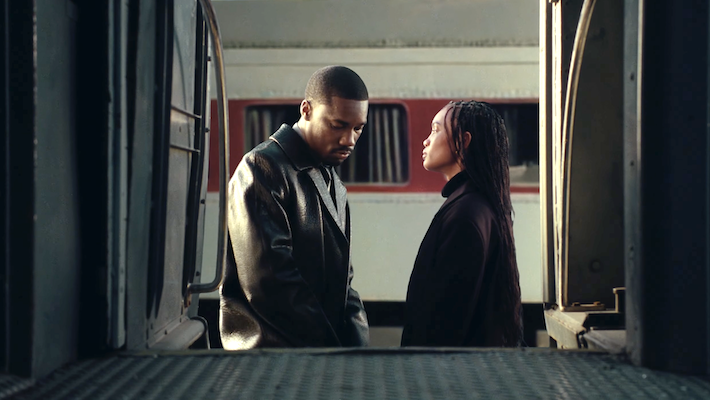Is the universal acclaim of “Lose Yourself” representative of Eminem’s artistic peaks?
With eleven albums to his name, many of which spawned multi-platinum and diamond singles, ’s legacy has been soundly etched in music history. A history lined with apparent contradictions. How can a rapper as obscenely vulgar and gruesome as Slim Shady, the self-proclaimed Evil half of “Bad Meets Evil,” have so much crossover appeal? The same man who made “Kill You,” “Kim,” “Stay Wide Awake,” and “Same Song And Dance” secured radio dominance with “Not Afraid,” “Love The Way You Lie,” “The Monster,” and “River.” As much as Slim Shady, Marshall Mathers, and Eminem appear to exist as separate entities, so too do they gravitate toward certain themes and sonic aesthetics. Such versatility has allowed Em to explore a gamut of topics, going so far as to dabble in pop-rap he once decried all those years ago. Such universality served to expand his fanbase well beyond the hip-hop crowd, and many would likely cite “Lose Yourself” as the moment of conversion.
But is it fair to call the diamond-selling, Academy Award-winning single the defining song of Eminem’s career?
It’s certainly his most universally beloved. Fans of all ilks can likely recite at least some of the lyrics, if only the oft-memed “Mom’s Spaghetti.” Parents who once clutched pearls at the madman steering The Marshall Mathers LP and D12’s delightfully rude Devil’s Night found themselves drawn in by Em’s contagious motivation. Were it a fictional story, the release of “Lose Yourself” might have been the inciting incident to a full-fledged redemption arc. He even eschewed many of his favored sonic choices, switching moody minor-key synthesizers and cartoonish dark bangers with chugging palm-muted guitars, steering close to “rock-rap” in both theory and practice. Given the genre-bending production, it’s no wonder “Lose Yourself” opened the door for new audiences; at the time, even rock stations kept the single in heavy rotation without raising too many eyebrows. Looking back, his eventual partnership with was hardly surprising, nor was the creative direction they found themselves taking.

Rich Polk/Getty Images
As is often the case, universal acclaim tends to arise when hip-hop traditionalism is placed in the backseat. Look no further than the 8 Mile Soundtrack. Eminem offered “8 Mile Road,” a dense, layered, and beautifully rendered exploration of themes presented on “Lose Yourself.” Only it came delivered in a six-minute rap-centric package, the likes of which could never captivate the attention of mainstream America. In many ways, “8 Mile Road” is the superior song, boasting some of the most well-written lyricism of Eminem’s expansive career. It’s even more powerful than its counterpart, exploring both sides of the inspiration/depression dichotomy. And yet it still feels like a cult classic, merely gold in comparison to the Diamond and universally recognized “Lose Yourself.”
That’s not to say “Lose Yourself” lacks in lyricism. Embodying the character of B. Rabbit on wax, Eminem manages to make his own unique story into something widely relatable. At the end of the day, the tale is tried and true. Despite being the biggest artist in the world, Eminem has always painted himself as an underdog. He’s done so in his music, even to this day casting reminders of his arduous come-up. It’s well documented that he was a victim of bullying, seeking refuge in hip-hop and inspiring confidence through his craft. Even when dominating his foes on wax, all but laying waste to the memory of Raymond Benzino, Em actively labeled his opponent a “Bully.” A familiar narrative for himself and millions. Whether in art or life itself, the underdog archetype is an easy one to root for. It’s open to many different interpretations spawning many different antagonistic forces — the tyranny of authority, of abusive partners, of simple circumstance. Not only does “Lose Yourself” do an excellent job of telling a self-contained tale of courage amidst adversity, it does so over an adrenaline-fueled anthem-esque instrumental thick with crossover potential. Having withstood the test of time for nearly two decades, “Lose Yourself” has earned the right to be declared a classic record.
But is it the classic record? On the basis of popularity alone, it’s easy to understand why publications and fans alike have come to respect “Lose Yourself” as Em’s definitive piece of work. And it’s a fair statement to make, despite the inherent implication behind such a conclusion, that bigger is better. Throughout his career, Eminem has given us artistic brilliance that all-too-often goes unrecognized. The aforementioned “8 Mile Road.” The tragedy of “Stan.” The haunting confession that is “Deja Vu.” The painfully self-aware lamentations like “Say Goodbye Hollywood” or its strung out counterpart “Evil Deeds.” None of them stand even remotely close to the legacy of “Lose Yourself,” despite representing some of Eminem’s most compelling authorial moments. But at the end of the day, the Academy Award-winning single will stand sentinel as Eminem’s crowning achievement. Even if the grass is truly greener on the other side of the 8 Mile Road.




